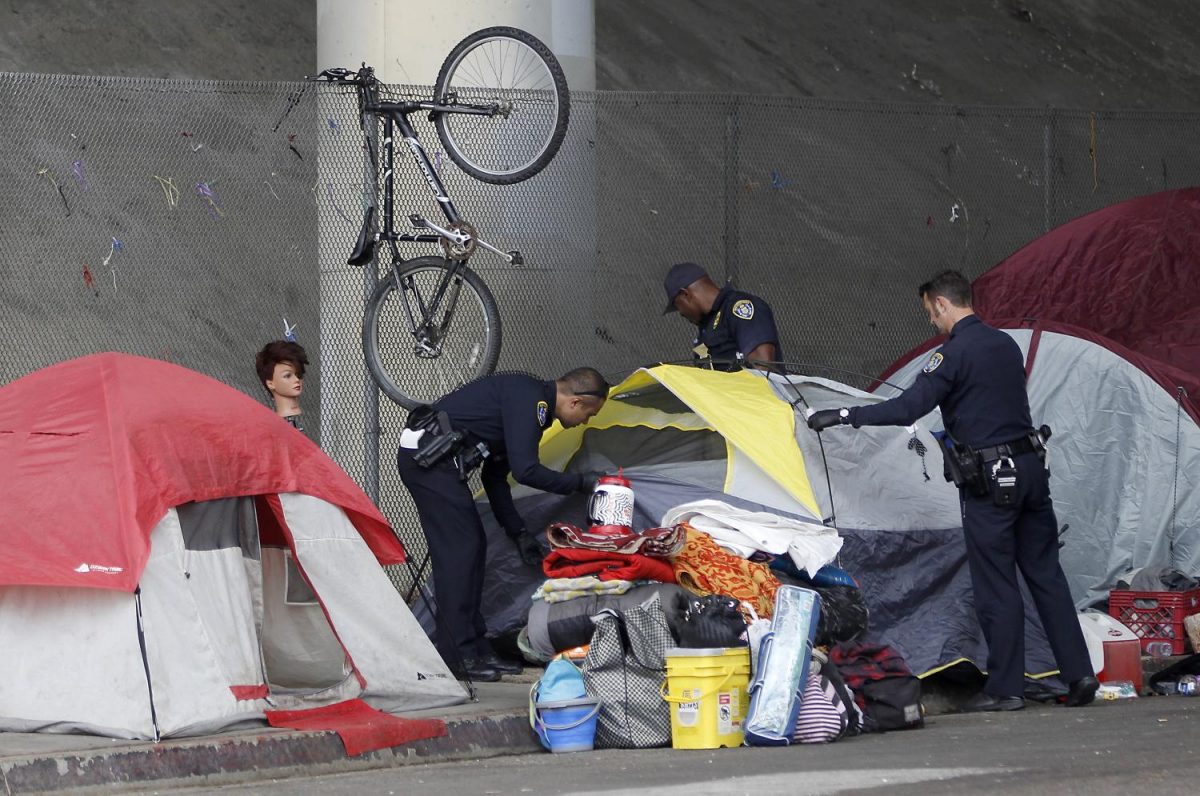Sing “Happy Birthday” twice from beginning to end while scrubbing your hands with clean soapy water—that should be the appropriate length of time to adequately wash your hands and take a step toward Hepatitis A virus (HAV) prevention. Washing your hands and getting vaccinated is even more important now with the HAV outbreak affecting San Diego.
The San Diego County Public Health Officer declared a local public health emergency on Sept. 1. As of Sept. 26, there have been 461 cases, 17 deaths, and 315 hospitalizations caused by HAV, with the number of cases increasing weekly. The outbreak has also extended to Los Angeles and Santa Cruz.
According to the California Health Alert Network (CAHAN), “most [HAV] infections result from close personal contact with an infected household member or sexual partner, or their fecally contaminated environment.”
The highest number of outbreak cases is among the homeless in downtown San Diego, El Cajon, Santee, La Mesa, and the adjacent unincorporated areas. Also at risk are injection and non-injection illicit drug users, those living in dense living conditions with shared bathrooms, healthcare workers, and having unprotected sex with someone who has HAV.
This poses the question, is there a possibility of an outbreak at the Mesa College campus? “Of course, that is why we were given doses of the vaccine” says Suzanne Khambata FNP, Health Services Center Director, Student Health Services at Mesa College.
Mesa students seem to be aware that the outbreak is primarily in Downtown; however, there is some concern about the virus continuing to spread.
“They aren’t working fast enough to contain it and keep it from spreading,” said Mesa student Yabsera Tekelaregay.
In addition to the vaccine, which is $28 per injection for students or free-of-charge for homeless students at Student Health Services located at I4-209, thoroughly washing your hands often, using hand sanitizer, keeping your hands away from your face, and having protected sex (condoms are also free for all students at Student Health Services) are all preventative measures from contracting the virus.
HAV is a highly contagious, serious illness that can be fatal; it can cause liver disease and symptoms can last for several weeks or even months. Flu-like symptoms may be present such as fever, fatigue, loss of appetite, diarrhea, nausea, and vomiting; however, according to Khambata, the following symptoms are strong indicators of HAV: Jaundice (yellowing of the skin or eyes), very prominent stomach pain, dark urine (brown in color), and/or pale stools.
“I don’t have a lot of concerns, I’m vaccinated against Hepatitis, honestly, just constantly make sure that you always wash your hands whenever you use the restroom, try and stay clean, and also vaccinate your children,” said Claudia Callejas, a student at Mesa College.
The Centers for Disease Control and Prevention (CDC) continues to research the cause of this particular outbreak, and while San Diego endures this crisis by administering vaccines to the homeless, adding more handwashing stations, and restrooms downtown, taking the steps to keep yourself and your loved ones healthy and safe from HAV assists in keeping this disease from spreading. Simply getting vaccinated and keeping your hands clean are the most effective way to be protected from HAV. For additional information on clinics where you can request the HAV vaccine or for more information about the virus, visit the San Diego County website www.sandiegocounty.gov or call 2-1-1.




